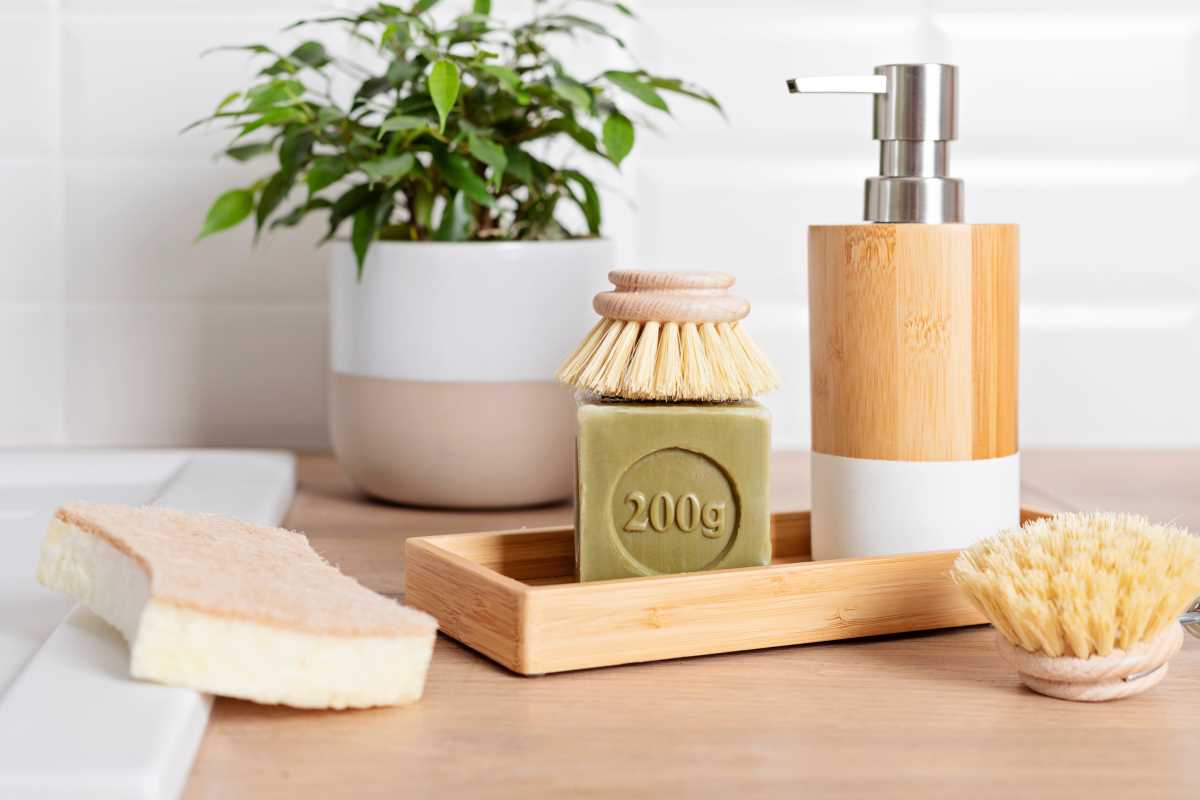The kitchen is at the heart of our homes and, often, the source of a lot of waste. From leftovers that didn’t make it to the next meal to piles of single-use plastics, the kitchen can quickly become a hotspot for things heading to the landfill. But it doesn’t have to be that way!
Creating a low-waste kitchen is a step toward living more sustainably and a great way to save money and get more organized in the process. Whether you’re new to eco-friendly living or already have a few green habits, there’s always room for improvement. Here’s your guide to crafting a low-waste kitchen that works for you and the planet.
1. Become a Meal Planning Pro
One major culprit of kitchen waste? Food that spoils before you can use it. A little planning can go a long way in solving this problem.
Tips for Better Meal Planning:
- Take Inventory First: Check your fridge, freezer, and pantry before making your grocery list. Use up what you already have to avoid buying duplicates or letting ingredients go to waste.
- Plan Weekly Meals: Map out your meals for the week based on what’s in your kitchen. Be realistic–if you know you’ll eat out one night, account for that in your plan.
- Shop with a List: Stick to your list to avoid impulse buys that might not get used. (Yes, that random exotic spice can wait.)
Pro Tip: Don’t forget to plan for leftovers! Cooking in batches can save time and reduce waste by making sure every ingredient gets used.
2. Get Creative with Food Scraps
Before tossing those carrot tops or potato peels, think again! There are plenty of ways to put food scraps to good use.
Ideas to Reuse Food Scraps:
- Make Broths and Stocks: Save veggie scraps, onion skins, and herb stems in a freezer bag. Once you’ve collected enough, simmer them to make a flavorful homemade stock.
- Repurpose Citrus Peels: Use lemon or orange peels to infuse vinegar for an all-natural cleaner, or grate them into desserts for a zesty kick.
- Bake with Overripe Foods: Bananas too brown? Turn them into banana bread. Soft apples? Make apple sauce or add them to muffins.
- Regrow Produce: Many veggies, like green onions, celery, and lettuce, can regrow from scraps in just a bit of water. This is not only sustainable but also super satisfying.
Quick Tip: Keep a small container in your freezer for scraps you plan to use later. It saves space and prevents smells in the fridge.
3. Start Composting
Even with careful planning, some kitchen waste is inevitable–think eggshells, coffee grounds, or spoiled greens. Composting is a fantastic way to keep organic waste out of the landfill and turn it into something useful for your garden.
How to Get Started:
- Choose a Method: If you have a backyard, go for a compost bin or heap. Apartment dwellers can try vermicomposting with worms or countertop compost bins.
- Understand Compostable Items: Toss in fruit and veggie scraps, coffee grounds, eggshells, and even paper towels. Avoid meat, dairy, and oily foods to keep your compost healthy.
- Layer It Up: Alternate layers of “greens” (like food scraps) and “browns” (like dry leaves or newspaper). This balance helps break down waste faster.
Encouragement: Don’t have a garden? Offer your compost to neighbors, community gardens, or local composting programs. Sharing is caring!
4. Swap to Reusable Products
Single-use plastics are everywhere in the kitchen, but you can find so many reusable alternatives that are not only eco-friendly but also chic and fun to use.
Reusable Kitchen Essentials:
- Storage Containers: Glass jars, silicone bags, and beeswax wraps are perfect replacements for plastic bags and wrap.
- Shopping Bags: Bring reusable tote bags or mesh produce bags to the store or farmers’ market. Bonus points if you keep extras in your car so you never forget them!
- Dish Towels: Say goodbye to paper towels and hello to cloth dish towels or microfiber cloths for cleaning up spills.
- Reusable Water Bottles and Coffee Cups: If you’ve got a coffee habit, invest in a thermal cup to reduce disposable waste. The planet (and your coffee) will thank you.
Creative Idea: Turn it into a DIY project! Sew your own reusable produce bags or decorate a plain glass jar to store snacks and dry goods.
5. Tackle Food Packaging
Kitchen waste isn’t just about food–there’s plenty of packaging waste too. But with a little effort, you can cut down on the disposable plastics and non-recyclables that pile up.
Reducing Food Packaging Tips:
- Buy in Bulk: Bring your own containers to bulk stores to stock up on pantry staples like rice, beans, and spices.
- Choose Minimal Packaging: When shopping, look for items with recyclable or biodegradable packaging. Avoid products wrapped in excessive plastic.
- Reuse Containers: Repurpose glass jars, tins, and sturdy boxes for storage, crafts, or organization around the house.
- DIY What You Can: Make your own granola, salad dressings, or dips to avoid buying prepackaged versions. It’s often cheaper and tastes fresher, too!
Fun Challenge: See if you can make a week’s worth of meals buying only unpackaged or recyclable-packaged items. It’s a great way to rethink your shopping habits.
6. Practice Mindful Shopping
Bringing mindfulness into your shopping habits can make a big difference in reducing waste. It’s all about being intentional and thinking ahead.
Shopping Smarter:
- Avoid Overbuying: It’s tempting to grab that 3-for-1 deal, but ask yourself if you’ll actually use it all before it expires.
- Shop Seasonally: Seasonal produce is fresher, often cheaper, and better for the environment because it doesn’t require as much energy to grow or transport.
- Support Local: Buying from farmers’ markets or local shops reduces the need for packaging and supports the community.
Mindful Tip: Check your fridge mid-week and plan a “use-it-up” dinner using anything that’s close to spoiling. This is also a great way to get creative in the kitchen!
7. Love the Benefits of Going Low-Waste
Not only will your low-waste kitchen help you live more sustainably, but it comes with other surprising perks too. Here are some benefits to enjoy along the way:
- Save Money: With better meal planning and less packaging, you’ll notice a lighter grocery bill.
- Get Organized: A low-waste mindset helps you stay clutter-free and intentional about what comes into your kitchen.
- Feel Empowered: Each small change adds up. Knowing you’re making a positive impact on the planet is deeply rewarding.
Encouragement: Remember, progress is better than perfection. Even baby steps toward reducing waste can make a big difference over time.
Whether you start by planning meals more thoughtfully, composting veggie scraps, or investing in reusable products, every step gets you closer to a greener lifestyle.
 (Image via
(Image via





